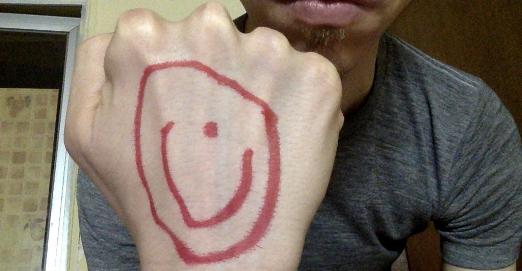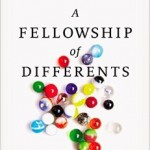
By now you probably have heard about Jeremy Courtney who launched the hashtag #WeAreN, as a show of solidarity for persecuted Christians in Iraq. Courtney founded the non-profit Preemptive Love, which works in Iraq, to “[eradicate] the backlog of Iraqi children waiting in line for lifesaving heart surgery” and pursuing “peace between communities at odds.”
Courtney recently did an interview with Huffington Post Religion editor Paul Rauschenbusch, which grabbed my attention. Specifically, he said:
We need a long-term plan, not just a short-term fix. There are agencies helping Christians, Yezidis, Turkmen, Shabak and others, and those services are necessary. But this isn’t only about what Obama or Maliki must do now. The Christian church needs to reconsider its relationship with violence; that is part of what has landed us and others in this dire situation. We cannot carp about Christian persecution and not talk about violence and our use of violent solutions. We need a 40- to 50-year plan so that when the time comes to overthrow the next dictator, we are not as blind to our own complicity and stuck with short-term gains.
Of course, the idea that we need to have a 40 or 50 year plan resonated with me. And, yes, the idea that the church adamantly needs to reject violence. But in reading Courtney’s words, my mind harkened back to the reasons why John and I wrote the Slow Church book. The tragic situations that we face in Iraq, in other conflict zones (Palestine, Syria, the Ukraine, with Boko Haram in Nigeria, etc.), or even amidst the tragedies of depression, broken families, etc. in relatively serene suburban neighborhoods of North America, are complex; they are not going to be resolved once and for all by a single course of action. Media coverage of conflict zones tends to oversimplify, and promote whatever single solution might seem the most efficient. This complexity highlights why we a conversation about Slow Church, about being communities of Christ’s followers — who follow in the way of Jesus in rejecting violence — who are called to be engaged selflessly at the grassroots in the variety of particular issues that contribute to the complexity of violence and oppression. A local, embedded community — for instance, a church — can be working for peace at a number of different levels in ways that outside NGO’s and governments cannot, and because of its commitment to the place, can — and must necessarily — take a long view.
In light of the violence perpetrated by ISIS, my friend Ragan Sutterfield suggested that we revisit the stories of the martyrs, perhaps starting with Perpetua and Felicitas. The martyrs, a term from the Greek word that means witness, bear witness to the hope of resurrection. We can work fearlessly and nonviolently for peace and flourishing in situations of conflict because as the martyrs remind us, beyond death lies resurrection and reconciliation with God. Whether we live or whether we die, we are called into the dangerous and vulnerable work of making peace, not just a momentary ceasefire, but the sorts of institutional and governmental transformation that allows for that sort of peace and flourishing that is sustainable.
In reflection on Jeremy Courtney’s words, my mind turned to Wendell Berry’s wonderful essay “In distrust of movements“ — which is a piece that John and I have revisited many times as we have pushed back on those who refer to Slow Church as a movement. Berry distrusts movements because they are too narrow, they don’t deal adequately with the complexity of problems. He begins:
I have had with my friend Wes Jackson a number of useful conversations about the necessity of getting out of movements — even movements that have seemed necessary and dear to us — when they have lapsed into self ‐ righteousness and self ‐ betrayal, as movements seem almost invariably to do. People in movements too readily learn to deny to others the rights and privileges they demand for themselves. They too easily become unable to mean their own language, as when a “peace movement” becomes violent. They often become too specialized, as if finally they cannot help taking refuge in the pinhole vision of the institutional intellectuals. They almost always fail to be radical enough, dealing finally in effects rather than causes. Or they deal with single issues or single solutions, as if to assure themselves that they will not be radical enough.
And so I must declare my dissatisfaction with movements to promote soil conservation or clean water or clean air or wilderness preservation or sustainable agriculture or community health or the welfare of children. Worthy as these and other goals may be, they cannot be achieved alone. I am dissatisfied with such efforts because they are too specialized, they are not comprehensive enough, they are not radical enough, they virtually predict their own failure by implying that we can remedy or control effects while leaving causes in place. Ultimately, I think, they are insincere; they propose that the trouble is caused by other people; they would like to change policy but not behavior.
And so, we begin to get a tiny taste of why churches are essential to God’s healing of the world, because they are locally-embedded, and with a diversity of gifts and skills among their members, they can work for peace at the grassroots, and they find their identity in the biblical story of God’s reconciliation of ALL things. God’s work, and the work that we as churches have been called into, won’t end until everything has been made right, until justice and shalom reigns in every corner of creation. And in addition to working for peace among their neighbors, churches are called to be communities that embodies peace, that offers the real hope that diverse people can be at peace with one another and can work side by side as equals.
What are we to do in the face of ISIS?
I cast my hope with the people of God. We need government; we need non-profits, and I pray that churches will collaborate with these powers insofar as they foster peace and reconciliation, but their vision is too narrow. Let our work be done first through the church, and not in spite of it. Let’s support churches in conflict zones — Iraq or Palestine, for instance — send them resources and people (not as the mighty Americans who can fix everything, but as brothers and sisters who are willing to be present with them and enter into their sufferings in deep and healing ways). But most important of all, let’s give every last drop of ourselves to being church communities of peace in our very own neighborhoods: learning to talk and work together amidst whatever sorts of diversity God has blessed our congregation with, to enter boldly and compassionately into whatever struggles our neighbors might face. This is the way of hope. This is the way of Slow Church.












